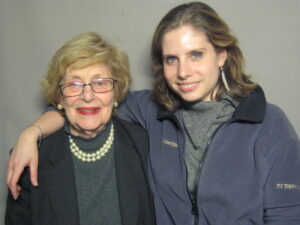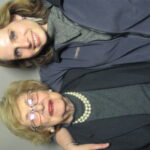Description
Rosalie reflects on her early years, her accomplishments and hopes for her familyParticipants
- Rosalie “Mickey” Greenberg
- Cara Feinberg
Venue / Recording Kit
Tier
Keywords
- charity
- Charles Lindberg
- Community Activism
- family naming and nicknames
- Floral Park
- historical events/people
- Jewish
- Ku Klux Klan
- memories of former times
- memories of growing up
- personal experiences
- playiing favorites (with children)
- religious beliefs and practices
- social beliefs and practices
- social work
- The Depression
- Volunteerism
- women’s movement
- WWII


